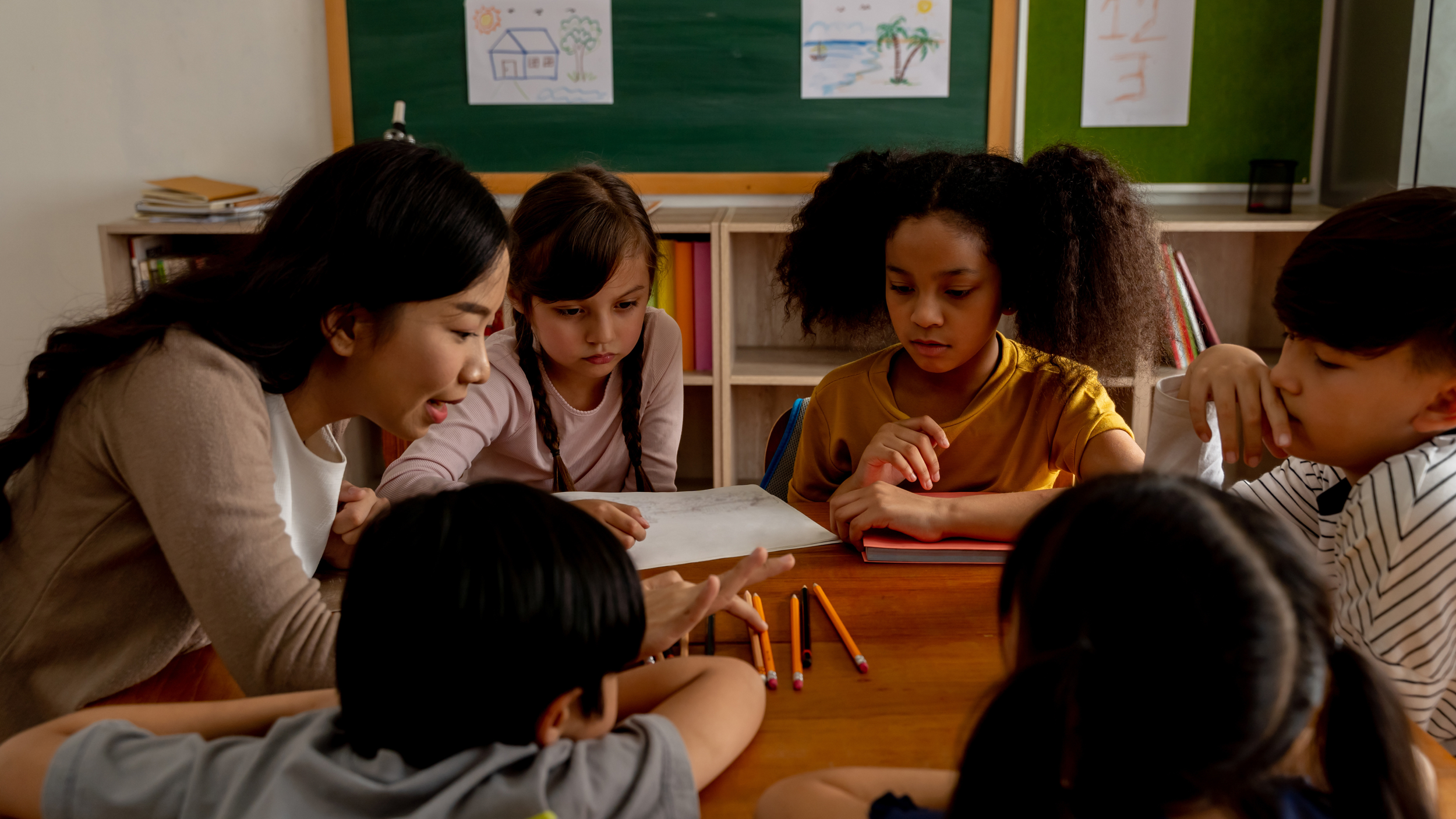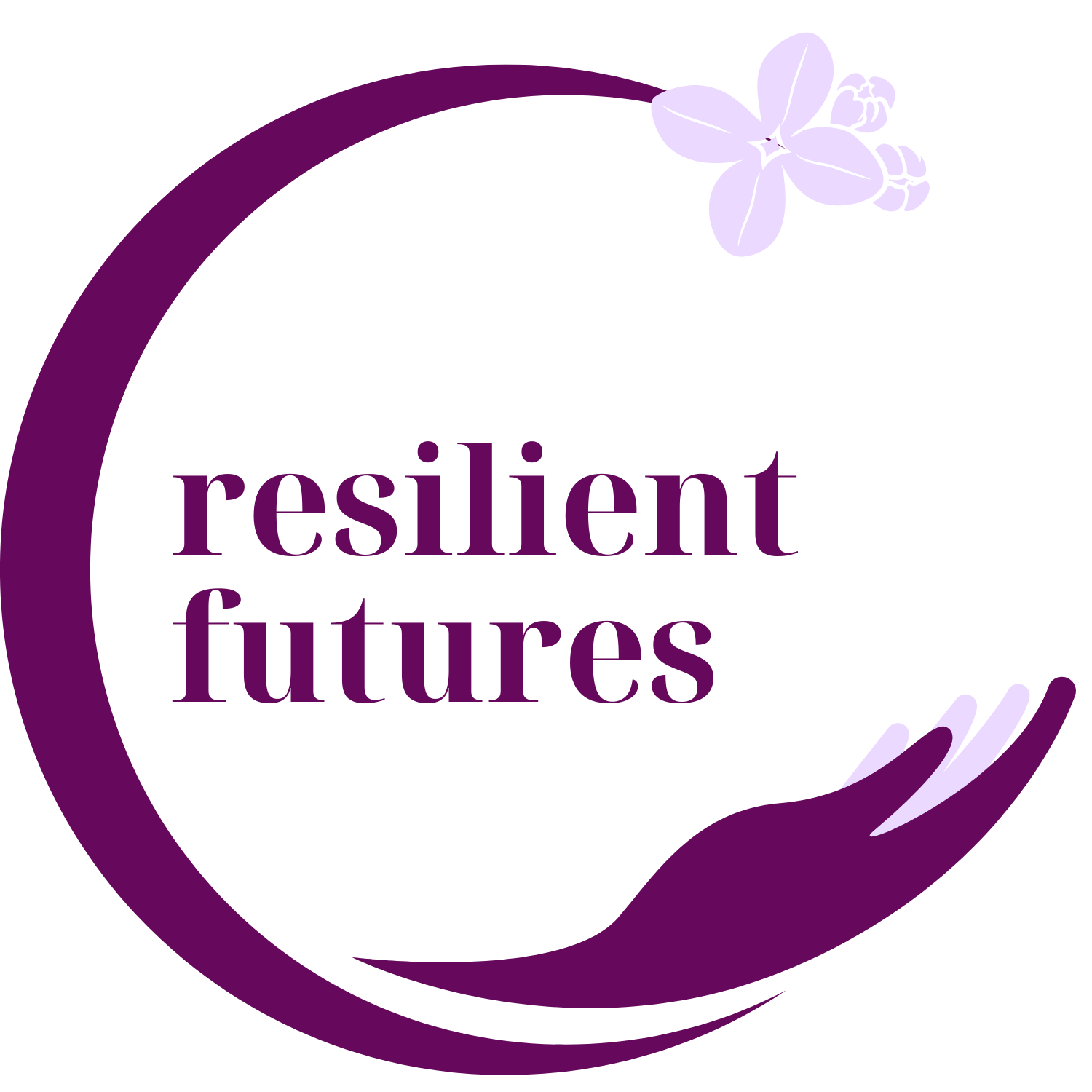When we empower educators and youth-serving professionals to create safer, more restorative learning environments, we build a foundation for trauma-informed schools in the future. Our Trauma-Informed Futures© Programs & Services increase awareness of trauma, facilitate behavior change, and develop necessary skills to respond differently to trauma for sustainable outcomes.
-

Early Childhood (0 - 5 yrs)
Trauma experienced during the first five years of life can have a significant impact on the child’s development, interfering with self-regulation, coping with stress, learning, and developing positive relationships. Our ECE programs promote environments that centralize caregiving practices, prioritize relational support & co-regulation, and utilize trauma-informed practices to foster resilience and growth.
-

Elementary Education: K - 5
Our Elementary Education Programs are designed to help Educators and Youth-Serving professionals adopt a trauma-informed mindset, equipping the school community with knowledge, strategies, and implementation tools to drive a paradigm shift at the individual and organizational levels.
-

Secondary Education: 6 - 12
Our Secondary Education programs are specifically designed for professionals working with Middle School and High School students, encompassing all members of your school community including Educators, Administrators, Long-term Substitutes, and Support Staff. Secondary Education Programs focus on increasing capacity and sustainability for trauma-informed practices that meet the unique needs of adolescent learners.
-

Higher Education
Our Higher Education programs are specifically designed for professionals working within higher education settings, encompassing all members of your university or college community, including professors, faculty, administrators, and support staff. Participants gain access to knowledge and resources that can be seamlessly integrated into university or college settings, ensuring the continuity of trauma-informed practices that support young adults.
-

Pre-Service Teachers
Our programs for Pre-Service Teachers in graduate or post-graduate environments provide a deep knowledge of trauma-informed practices and strategies to introduce in classrooms from the onset. Participants will enter their professions equipped with tools and implementation support to establish safe, supported classrooms and trusting student relationships.
-

Community & Corporate Institutions
We partner with Community Systems and Corporate Institutions to recognize and respond to the impacts of trauma amongst employees, members, and participants. Our evidence-informed training and scalable support focus on creating a shared understanding of the impacts of trauma, identifying and addressing barriers to wellness, building trauma-informed organizational cultures, and equipping leaders with skills to cultivate thriving, professional, and community environments.
-

Online Courses & Resources
Our Trauma-Informed Futures Foundational Training Online Course and supplemental content will provide a rich understanding of the far-reaching impact of Childhood Trauma, and specific knowledge & strategies to equip participants with the support needed to implement trauma-informed practices and policies within their teams and organizations.
The Four R’s Process©
The 4 R’s is our integrated process for cultivating trauma-informed, resilient communities through four foundational practices. The 4 R’s are at the foundation of all our Trauma-Informed Futures© Programming & Services. Working together, the 4 R’s build the capacity of communities to adopt Trauma-Informed Practices in both mindset and behavior changes.
Resilient Futures 4 R’s Process©
We develop our ability to RELATE by forging meaningful connections and fostering trust with those affected by trauma. We nurture our capacity to REFLECT by embracing a heightened awareness and a genuine commitment to honoring others' experiences. We commit to RESTORE by countering trauma responses with healing-centered language, rituals, and routines. We strive to RENEW through joyful, compassionate, and resilience-building experiences.
How We Work
Resilient Futures utilizes the principles of implementation science to provide structures that support commitment to change, embedded champions, alignment and collaboration within and across systems.
Providing participating schools/programs with foundational training for all staff and ongoing professional development
Developing embedded leadership within individual schools and at the district level through implementation teams and “Train the Trainers” programming
Providing consultation to support the shift from theory to application
Utilizing program evaluation to measure outcomes and inform ongoing application
Responsive Partnership
Tailored programming that directly supports your needs. Instead of static curriculums, we embrace trauma-informed practices, collaboratively crafting each piece of training with our partners. By leveraging existing school/team dynamics, strengths, challenges, and organizational initiatives, we ensure our solutions are seamlessly integrated and highly effective.
Program Development
A program can include a combination of consultative sessions, foundational training, implementation support, and intensive professional development. Our method is grounded in change theory to increase sustained trauma-informed practices within your school or organization, the lives of our participants, and beyond in their respective communities.
On-going Optimization
At Resilient Futures, we prioritize continual program evaluation and optimization to better serve our communities. We constantly evolve our training and experiences by measuring effectiveness and outcomes, leveraging relevant research, gathering qualitative and quantitative participant feedback, and integrating insights from the diverse communities we serve.
Our Online Courses offer participants the foundational education and tools to create trauma-informed, inclusive environments for all children and adults. Empower yourself with practical strategies to foster resilience, healing, and growth in every learning community.

A monumental change occurs when we no longer ask “What’s wrong with you?” and instead ask “What happened to you?”

Give to further our Mission
More than ever, our schools and youth-serving communities are in need of trauma-informed education, training, and resources. Your tax-deductible gift will directly fund our program expansion efforts, enabling us to provide trauma-informed training and resources to a greater number of educators, schools, and youth-serving organizations.

Interested in learning more about our Trauma-Informed Futures© Programming & Services?



